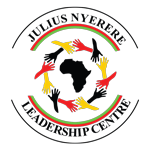Revisiting African-style Governance: Fostering an Inclusive Society Where Women and Youth can Thrive
At a time when societies around the world are grappling with governance challenges, ranging from declining trust in institutions to the growing need for inclusive development, Africa’s diverse experiences offer valuable insights. Across the continent, efforts have been undertaken to strengthen governance through community participation, cultural continuity, and intergenerational dialogue by various stakeholders, including the African Union, national governments, civil society, and academic institutions. These efforts reflect a broader recognition of the importance of aligning governance approaches with the lived realities and values of local communities. In this context, emerging frameworks emphasize the concept of plural and hybrid forms of governance, acknowledging the dynamic interplay between modern and traditional systems, innovation and heritage, as well as formal and informal institutions. Such approaches respect cultural values, promote social cohesion, and encourage responsiveness to both youth and women as vital stakeholders in shaping the future.
Africa’s demographic profile characterized by the world’s youngest population presents both a policy imperative and an analytical opportunity for rethinking governance frameworks. Recent scholarship has increasingly emphasized the need to incorporate the perspectives and lived experiences of youth and women into governance systems as co-creators of institutional legitimacy and public accountability. Building on this, it is important to acknowledge that women and youth in Africa are not a homogenous group; their experiences of governance differ across region (urban/rural, conflict-affected/stable), ethnicity, socio-economic background, and marginalized identities such as persons with disabilities and displaced populations. These intersecting differences often interact with informal networks, community practices, and intergenerational norms, which already shape governance in significant ways across African contexts. Yet these practices are often undervalued in conventional institutional analysis. This symposium at Makerere University seeks to provide a platform for interdisciplinary reflection on how African-style governance rooted in local legitimacy, social cohesion, and evolving gender and generational roles can offer viable pathways for inclusive and dignity-enhancing political development.
Building on the diverse expertise of scholars, practitioners, and emerging leaders from Africa, Japan, and beyond, the symposium will foster interdisciplinary and intergenerational dialogue. Thematic sessions will explore:
• Driving Sustainable Peace and Inclusive Development in Africa: Realizing a Society Where Women and Youth Can Thrive;
• The Values and Institutions of Inclusive African Governance: From the Perspectives of Gender, Generation, and Regionality;
• The Potential of African-style Democracy and Peacebuilding Unleashed by Women and Youth; and
• Youth-led sessions offering platforms to highlight student perspectives and emerging civic imaginaries.
The symposium is grounded in the conviction that building sustainable, inclusive societies requires co-creative governance frameworks. As such, it foregrounds the importance of listening to the lived experiences and aspirations of women and youth as agents of political transformation. It invites a rethinking of democracy as an evolving practice rooted in dignity, community trust, and dialogical authority—adapted to local contexts and enriched by diverse voices. By centering inclusion and co-creation, the event underscores the need to reimagine governance as a dynamic process that reflects and responds to the realities of African societies. Ultimately, this symposium contributes to exploring, discussing, and envisioning the future of African-style governance through mechanisms that balance tradition and innovation, state and society, formal and informal institutions, and relational legitimacy.
Date:
Tuesday, 9 December 2025
Venue:
Auditorium of Health Science Faculty, Makerere University
* Programme is provisional and selection of assigned names is under planning.
REGISTRATIONS CLOSED


